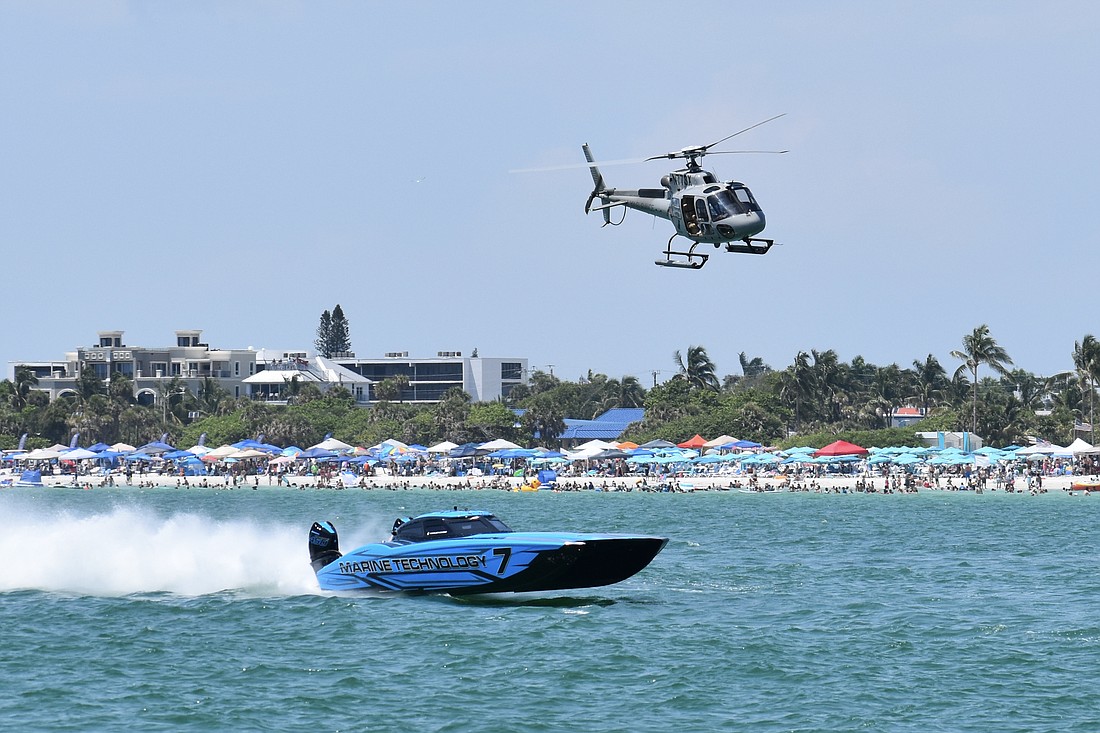- May 16, 2025
-
-
Loading

Loading

Whether the city of Sarasota should continue to co-sponsor some special events in the face of rising costs was central to a Monday Sarasota City Commission workshop discussion.
On the agenda were staff-proposed changes to the special event ordinances, largely consisting of housekeeping items and procedural matters, but with some new restrictions intended to strike a more harmonious balance between large street festivals and the comfort and convenience of downtown residents.
It was the opening salvo of a process that will include public engagement as changes are made to the current ordinances that will eventually go before the commission for final consideration.
The vast majority of special events that take place in the city are not co-sponsored by the city, leaving costs the responsibility of event organizers. The city does co-sponsor 15 annual special events, though, resulting in $387,592 in taxpayer expense in fiscal year 2023. That’s up 33.5% over fiscal year 2022, when the city spent $290,338 on those events.
The Sarasota Police Department comprises the largest line item each year, totaling $262,421 last fiscal year in overtime and other mobilization costs. Of the 15 events, the two largest SPD expenses were the downtown New Year’s Eve celebration at $57,182 and the Powerboat Grant Prix races at Lido Beach at $66,818. Both were up compared to $31,579 and $35,321, respectively, in fiscal 2021.
Of all those costs, it was the boat races, which last year were held near the July 4 weekend, that caught the attention of Vice Mayor Jen Ahearn-Koch, who questioned the near doubling over two years.
City Manager Marlon Brown said for all co-sponsored events for which the city is responsible for the costs, the SPD’s expenses are growing the fastest.
”There’s a lot happening in the nation in terms of the need to provide really good public safety,” Brown said. “We rely on SPD to say what resources they need to really ensure that we have a safe event. You'll see those numbers increase tremendously for all events for SPD.”
That prompted Ahearn-Koch to question how far the city is willing to go when it comes to bearing the costs of co-sponsored events.
“I think that if the city is going to sponsor something like that, knowing that the cost could double every two years, that’s something we should try to project and take into consideration when figuring out if that's something we're going to sponsor or not,” she said.
Brown replied, "That's the reason for this conversation. Obviously we have costs increasing every year. Taxpayers are eating that cost, and so the question at the end of the day is do you want to continue all these events and continue budgeting accordingly, or do you want to consider reducing some of these co-sponsored events?”
Many of the recommended ordinance changes, said Director of Governmental Relations Jennifer Jorgensen, are intended to streamline processes for both the event organizers and staff. Others, such as limiting the frequency of events in the same location, are meant to ease the burden of living close to those events by nearby residents.
Reducing the frequency of events run in city parks will give them time to recover and regenerate between them, added Brown.
Some of the suggested changes include:
Those restrictions, however, will not apply to city co-sponsored events, or recurring events, which must be held at the same location and same time of day. All dates for recurring special events must be listed on a single special event permit application.
In addition, all special event activities, excluding teardown, must conclude by midnight.
The next steps in the special events ordinance process include, in order, public input sessions, revisions if needed, concurrence from the city attorney’s office and presentation to the City Commission. No time frame has been set for City Commission consideration.
This story has been updated to correct the percentage of cost increases.